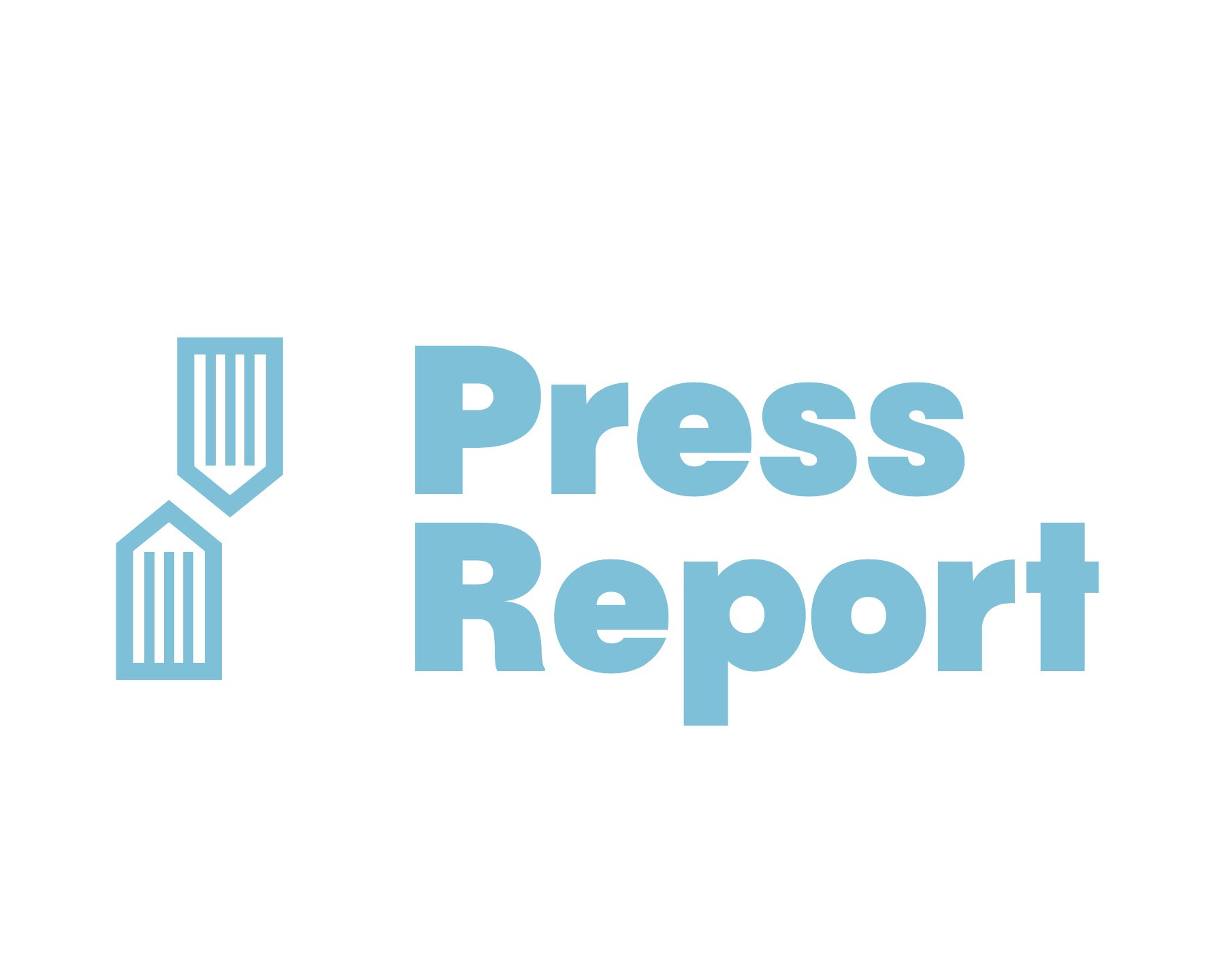AI in Education
13 Ethical Considerations for Educational Data Mining: A Must-Read for Educators

As educators, we understand the important influence that data mining has on advancing learning. Nevertheless, along with this significant impact comes a great deal of responsibility.
In this article, we delve into the 13 ethical considerations that demand our attention in the realm of educational data mining.
From data privacy and bias in algorithms to informed consent and ownership, we explore the frameworks and guidelines that enable us to navigate this complex terrain.
Join us on this journey towards a more ethical and liberated educational landscape.
Key Takeaways
- Data privacy and security measures, such as encryption protocols and access controls, are crucial in educational data mining.
- Informed consent and transparency are vital in ethical educational data mining, requiring explicit consent and detailed information about data mining purpose and safeguards.
- Bias and fairness in algorithms need to be addressed through algorithmic accountability, transparency, and careful examination of data sources, models, and decision-making processes.
- Data ownership and control play a significant role in protecting student privacy and promoting transparency and accountability in educational data mining.

Data Privacy and Security
Data privacy and security are critical concerns when engaging in educational data mining. The potential for a data breach is a significant risk that must be addressed.
Educational institutions must ensure that robust encryption protocols are in place to protect student data from unauthorized access. Encryption protocols play a vital role in safeguarding sensitive information by encoding it into an unreadable format, rendering it useless to any unauthorized individuals who may attempt to intercept it.
Additionally, institutions must implement strict access controls and authentication mechanisms to limit data access to authorized personnel only.
By prioritizing data privacy and security, educators can create a safe and secure environment for students to engage in educational data mining.
As we transition into the subsequent section about ‘informed consent and transparency’, it’s crucial to recognize that these principles are essential for building trust and maintaining ethical standards in educational data mining practices.

Informed Consent and Transparency
To ensure ethical practices in educational data mining, we must prioritize informed consent and transparency regarding the use of student data.
Informed consent challenges arise when students and their parents aren’t fully aware of how their data will be collected, analyzed, and used. Transparency issues occur when educational institutions fail to provide clear and understandable explanations about their data mining practices.
To address these challenges and issues, it’s crucial for educators and institutions to obtain explicit consent from students and their parents before collecting and analyzing their data. Additionally, they should provide detailed information about the purpose of data mining, the types of data collected, and the safeguards in place to protect student privacy. By doing so, we can foster trust and respect for student privacy, ensuring that data mining practices are conducted ethically and with the best interests of students in mind.
In the subsequent section, we’ll explore the importance of addressing bias and ensuring fairness in algorithms used for educational data mining.

Bias and Fairness in Algorithms
As educators, we must acknowledge the importance of addressing bias and ensuring fairness in the algorithms used for educational data mining. Algorithmic accountability and transparency play a crucial role in achieving this goal.
Educational data mining algorithms have the potential to perpetuate existing biases and inequalities if not designed and monitored carefully. It’s vital to critically examine the data sources, algorithmic models, and decision-making processes to identify and mitigate bias.
Algorithmic accountability requires transparency in how algorithms are developed, implemented, and evaluated. This involves providing clear explanations and justifications for algorithmic decisions and making the algorithms’ inner workings accessible for scrutiny.

Data Ownership and Control
We must assert our ownership and control over the data used in educational data mining. Data governance and data sovereignty are crucial aspects that educators need to consider when it comes to the collection, storage, and use of student data.
Here are four reasons why asserting ownership and control over our data is essential:
- Protecting student privacy: By taking ownership of the data, we can ensure that student privacy is safeguarded and that data is used appropriately and ethically.
- Empowering educators and students: Having control over data allows educators and students to make informed decisions about how the data is used and shared.
- Promoting transparency: Data governance enables transparency in educational data mining practices, fostering trust and accountability.
- Mitigating risks of data misuse: By asserting ownership, we can establish protocols to protect against data breaches and unauthorized access.

Ethical Guidelines and Frameworks
Continuing the discussion on data ownership and control, educators must now focus on establishing ethical guidelines and frameworks for educational data mining practices. Accountability and responsibility are essential aspects of ensuring that educational data mining is conducted ethically. Educators must consider the potential risks and harms associated with data mining and take appropriate measures to protect the privacy and confidentiality of students’ information. Ethical decision-making processes should be implemented to guide educators in navigating complex ethical dilemmas that may arise during data mining activities. To provide a clear and concise understanding of the ethical guidelines and frameworks, the following table outlines key considerations for educators to adhere to:
| Ethical Guidelines and Frameworks |
|---|
| Accountability and Responsibility |
| Ethical Decision Making |
| Privacy and Confidentiality |
| Informed Consent |
| Transparency and Trust |

Frequently Asked Questions
What Are the Potential Risks and Consequences of Data Breaches in Educational Data Mining?
Potential consequences of data breaches in educational data mining include compromised student privacy, identity theft, and misuse of sensitive information. Cybersecurity risks can lead to unauthorized access, manipulation of data, and disruption of educational systems.
How Can Educators Ensure That the Data They Collect Through Educational Data Mining Is Used Solely for Educational Purposes?
To ensure data collected through educational data mining is used solely for educational purposes, we must prioritize data privacy and security. Educators can implement strong safeguards, transparent policies, and regular audits to protect students’ information and uphold ethical standards.
Are There Any Specific Regulations or Laws in Place to Protect Student Data in Educational Data Mining?
There are specific regulations and a legal framework in place to protect student data in educational data mining. These regulations ensure that data is used solely for educational purposes and safeguard student privacy.
What Steps Can Educators Take to Minimize Bias and Ensure Fairness in the Algorithms Used for Educational Data Mining?
To ensure algorithm fairness and mitigate bias in educational data mining, educators can follow steps such as carefully selecting data sources, conducting regular audits, and involving diverse stakeholders in decision-making.
How Can Educators Navigate the Ethical Challenges of Using Student Data in Educational Data Mining While Maintaining Transparency With Students and Their Families?
To navigate the ethical challenges of using student data in educational data mining while maintaining transparency with students and families, we must prioritize building trust through open communication and clear consent processes.

Conclusion
In conclusion, educators must prioritize ethical considerations in educational data mining to ensure the privacy and security of student data, maintain transparency and informed consent, address biases in algorithms, and establish clear guidelines for data ownership and control.
While some may argue that implementing these considerations will be time-consuming and resource-intensive, it’s crucial to remember that the well-being and success of our students are at stake.
By taking these ethical considerations seriously, we can create an educational environment that’s fair, equitable, and respectful of student privacy.
Ava combines her extensive experience in the press industry with a profound understanding of artificial intelligence to deliver news stories that are not only timely but also deeply informed by the technological undercurrents shaping our world. Her keen eye for the societal impacts of AI innovations enables Press Report to provide nuanced coverage of technology-related developments, highlighting their broader implications for readers.
AI in Education
Why Intelligent Tutoring Systems Are Essential for Personalized Learning

Picture a school environment where each student has access to personalized instruction, instant feedback, and adaptive learning materials. This highlights the capabilities of intelligent tutoring systems. Using cutting-edge technology, these systems are transforming the educational experience.
They enhance student engagement, improve learning outcomes, and provide individualized instruction that caters to every student’s unique strengths and weaknesses.
In this article, we delve into the reasons why intelligent tutoring systems are essential for personalized learning and how they can liberate students from the constraints of traditional teaching methods.
Key Takeaways
- Intelligent tutoring systems provide personalized instruction and adaptive content tailored to individual needs, leading to improved learning outcomes.
- Individualized instruction allows learners to progress at their own pace and receive targeted support to overcome learning gaps and reach their full potential.
- Real-time feedback and assessment through intelligent tutoring systems offer valuable insights into student progress and understanding, empowering students to take ownership of their learning journey.
- Adaptive content and instruction provided by intelligent tutoring systems enhance student engagement in personalized learning, creating a dynamic and tailored learning experience.

Improved Learning Outcomes
To achieve improved learning outcomes, we rely on intelligent tutoring systems. These systems play a crucial role in providing a customized curriculum and personalized assessments, which are essential for effective and efficient learning.
By tailoring the curriculum to the individual needs and interests of students, intelligent tutoring systems ensure that they’re actively engaged and motivated to learn. This personalized approach allows students to progress at their own pace, addressing any gaps in their knowledge and building upon their strengths.
Additionally, personalized assessments enable educators to gain a comprehensive understanding of each student’s progress and provide targeted feedback and support. This data-driven approach not only helps educators identify areas for improvement but also allows them to track the effectiveness of their instructional strategies.
Ultimately, intelligent tutoring systems empower students and educators alike, leading to improved learning outcomes and a more liberating educational experience.

Individualized Instruction
For personalized learning, individualized instruction is key. In order to cater to the diverse needs of learners, customized lessons and a tailored curriculum are essential.
Here are three reasons why individualized instruction is crucial for effective personalized learning:
- Personalized Pace: With individualized instruction, learners have the freedom to progress at their own pace. This allows for a deeper understanding of concepts and prevents students from feeling overwhelmed or bored.
- Targeted Support: Individualized instruction enables educators to provide targeted support to each student. By identifying and addressing specific learning gaps, teachers can help students overcome challenges and achieve their full potential.
- Differentiated Approach: Every student has unique strengths, weaknesses, and learning styles. Individualized instruction allows educators to adapt teaching methods and materials to meet the diverse needs of their students, ensuring that each learner receives a personalized learning experience.

Real-Time Feedback and Assessment
Real-time feedback and assessment provide valuable insights into student progress and understanding. With the advent of intelligent tutoring systems, educators can leverage automated grading and personalized feedback to enhance the learning experience. These systems allow for immediate identification of student strengths and weaknesses, enabling educators to tailor instruction accordingly.
Automated grading eliminates the need for manual assessment, saving time and reducing human error. By analyzing student responses in real-time, the system can provide instant feedback, allowing students to rectify misconceptions and reinforce their understanding. This instant feedback loop promotes active learning and helps students stay on track.
Furthermore, personalized feedback takes into account each student’s unique needs and learning style. By providing specific and targeted feedback, intelligent tutoring systems empower students to take ownership of their learning journey. They can identify areas for improvement and make informed decisions about their study habits.

Adaptive Content and Instruction
Intelligent tutoring systems offer a wide range of adaptive content and instruction options to enhance the personalized learning experience for students. These systems utilize adaptive algorithms to tailor the curriculum to the specific needs and abilities of each learner.
Here are three key benefits of adaptive content and instruction:
- Personalized curriculum: Intelligent tutoring systems analyze student performance data to create a customized curriculum that targets individual learning gaps. This allows students to focus on areas where they need the most support, leading to more efficient and effective learning.
- Individualized pacing: With adaptive content and instruction, students are able to learn at their own pace. The system adjusts the difficulty level of the content based on the student’s progress, ensuring that they’re challenged but not overwhelmed. This promotes a sense of autonomy and confidence in their learning journey.
- Targeted interventions: Adaptive algorithms can identify misconceptions or areas of struggle for students in real-time. The system then provides targeted interventions, such as additional explanations or practice exercises, to help students overcome these challenges and deepen their understanding.

Enhanced Student Engagement
Our students’ engagement is enhanced through the implementation of intelligent tutoring systems. These systems provide opportunities for collaborative activities, allowing students to work together and learn from each other. By integrating collaborative activities into the learning process, students can engage in discussions, share ideas, and solve problems collectively. This fosters a sense of community and encourages active participation, as students feel a sense of ownership and responsibility for their learning.
Additionally, gamification techniques can further enhance student engagement. By incorporating game elements such as points, levels, and rewards, intelligent tutoring systems can motivate students to actively participate and progress in their learning. Gamification creates a sense of challenge and competition, making the learning process more enjoyable and engaging. Furthermore, it provides immediate feedback and promotes a growth mindset, where students are encouraged to take risks and learn from their mistakes.

Frequently Asked Questions
How Do Intelligent Tutoring Systems Cater to Students With Different Learning Styles and Preferences?
Intelligent tutoring systems cater to students with different learning styles and preferences through differentiated instruction and adaptive learning. This allows us to provide personalized support and tailor the learning experience to meet individual needs.
Can Intelligent Tutoring Systems Be Used for Both Academic Subjects and Non-Academic Skills Development?
Yes, intelligent tutoring systems can be used for both academic subjects and non-academic skills development. They can effectively support the acquisition of social emotional skills and provide vocational training.
Are There Any Limitations or Challenges Associated With Implementing Intelligent Tutoring Systems in Classroom Settings?
Implementing intelligent tutoring systems in classroom settings presents challenges such as technical integration and changes in teacher-student dynamics. However, the potential impact on personalized learning and individualized instruction makes overcoming these obstacles essential for educational liberation.
How Do Intelligent Tutoring Systems Ensure Student Privacy and Data Security?
Intelligent tutoring systems ensure student privacy and data security through robust data protection measures and addressing privacy concerns. We prioritize safeguarding student information, allowing for a safe and secure learning environment.
What Are the Potential Long-Term Benefits of Using Intelligent Tutoring Systems in Education?
Using intelligent tutoring systems in education can have potential long-term benefits. It enhances student learning, provides personalized support, and promotes self-paced learning. However, it may impact the teacher-student relationship and have some drawbacks.

Conclusion
In conclusion, intelligent tutoring systems (ITS) play a pivotal role in personalized learning. By providing individualized instruction, real-time feedback, and adaptive content, ITS greatly enhance learning outcomes and student engagement.
Moreover, the integration of anachronistic technology adds a unique depth to the learning experience, capturing the attention of modern learners and immersing them in a pedagogical environment that fosters growth and understanding.
The use of ITS isn’t just an option but a necessity in today’s educational landscape.
Bennett is the embodiment of versatility, adapting his writing to cover a broad spectrum of topics with professionalism and flair. Whether it’s breaking news, in-depth analyses, or feature pieces, Bennett’s contributions enrich Press Report with diverse perspectives and engaging content. His adaptability and keen journalistic instincts make him a vital member of our team, capable of capturing the essence of the moment in every story.
AI in Education
Unveiling the Power of Predictive Modeling in Educational Data Mining

I am thrilled to introduce to you the incredible potential of predictive modeling in the realm of educational data mining.
Today, we embark on a journey of discovery, exploring the immense benefits, key components, and techniques that drive this innovative field.
As we delve into the applications and challenges of implementing predictive modeling in education, we seek to liberate our minds and empower ourselves with the knowledge to revolutionize the way we analyze and understand educational data.
Key Takeaways
- Predictive modeling in education can improve student outcomes by making accurate predictions.
- It enables early intervention and targeted support for at-risk students.
- Predictive modeling facilitates personalized learning opportunities and empowers students.
- Implementing predictive modeling in education faces challenges such as ensuring data quality and addressing concerns about privacy and ethics.

Benefits of Predictive Modeling in Education
In our exploration of the benefits of predictive modeling in education, we’ve discovered significant improvements in student outcomes through the utilization of this powerful tool. Predictive modeling allows us to analyze large datasets and make accurate predictions about student performance, enabling us to intervene early and provide targeted support. By identifying at-risk students, we can develop personalized learning opportunities tailored to their specific needs, ensuring they receive the necessary resources and interventions to succeed.
This approach not only improves student outcomes but also fosters a sense of empowerment and engagement among students. By leveraging predictive modeling, educators can create a more inclusive and effective learning environment that meets the unique needs of every student. With these promising results, it’s evident that predictive modeling has the potential to revolutionize education and transform the way we support students’ learning journeys.
Transitioning into the subsequent section about ‘key components of educational data mining’, it’s essential to understand the underlying principles and methodologies that drive this transformative process.

Key Components of Educational Data Mining
To fully explore the key components of educational data mining, we’ll examine the essential steps involved in collecting, analyzing, and interpreting data to uncover valuable insights for educational improvement.
Educational data mining relies on predictive modeling techniques and data-driven decision making to extract meaningful information from vast amounts of educational data. Here are the key components of educational data mining:
- Data collection: This involves gathering relevant data from various sources such as student records, assessments, and learning management systems.
- Data preprocessing: Before analysis, the collected data needs to be cleaned, transformed, and organized to ensure its quality and suitability for modeling.
- Predictive modeling: This step involves applying various statistical and machine learning algorithms to build models that can predict student outcomes and behavior.
- Interpretation and action: Once the models are built, the results need to be interpreted to gain insights. These insights can then inform data-driven decision making in educational settings, leading to targeted interventions and improvements.

Techniques for Analyzing Educational Data
We can explore various techniques for analyzing educational data to gain valuable insights and inform data-driven decision making.
Two prominent techniques for analyzing educational data are data visualization and machine learning algorithms.
Data visualization allows us to represent complex educational data in a visual and intuitive manner, enabling us to identify patterns, trends, and anomalies. By using charts, graphs, and other visual representations, we can easily comprehend and communicate the information contained within the data.
On the other hand, machine learning algorithms provide automated methods for analyzing educational data and making predictions or classifications. These algorithms can identify hidden patterns and relationships within the data, which can be used to develop models for predicting student performance, identifying at-risk students, or personalizing educational interventions.

Applications of Predictive Modeling in Education
By harnessing the power of predictive modeling, we can leverage the insights gained from analyzing educational data to enhance decision making and drive positive educational outcomes.
Here are four applications of predictive modeling in education:
- Early identification of at-risk students: Predictive models can analyze various factors such as attendance records, grades, and behavior patterns to identify students who may be at risk of poor performance or dropping out. This allows educators to intervene early and provide necessary support.
- Personalized learning: Predictive models can help create personalized learning paths for students based on their individual strengths, weaknesses, and learning styles. By tailoring instruction to meet the unique needs of each student, predictive modeling can improve student engagement and performance.
- Optimizing resource allocation: Predictive models can assist in allocating resources such as teachers, textbooks, and technology to schools or classrooms based on predicted student performance. This ensures that resources are distributed efficiently and effectively.
- Curriculum planning: Predictive models can analyze historical data to identify patterns and trends in student performance. This information can help educators make informed decisions about curriculum development, ensuring that it’s aligned with student needs and goals.
By utilizing predictive modeling in these ways, we can revolutionize education and empower students to achieve their fullest potential.
However, implementing predictive modeling in education also poses several challenges.

Challenges in Implementing Predictive Modeling in Education
Implementing predictive modeling in education presents several challenges that educators must overcome to fully harness its power and potential in improving student outcomes.
One major challenge is the ethical considerations surrounding the use of predictive models. Educators must carefully consider the potential risks and benefits of using predictive modeling, ensuring that it doesn’t result in discrimination or bias towards certain student populations.
Additionally, data privacy is another significant challenge. Gathering and analyzing large amounts of student data raises concerns about the security and confidentiality of personal information. Educators must establish robust data protection measures to safeguard student privacy and comply with relevant laws and regulations.
Overcoming these challenges requires a thoughtful and responsible approach, where educators balance the potential benefits of predictive modeling with the need to protect student rights and ensure fairness and equity in education.

Frequently Asked Questions
What Are the Limitations or Drawbacks of Predictive Modeling in Education?
Limitations and drawbacks of predictive modeling in education include the risk of oversimplification, reliance on historical data, potential bias, and lack of contextual understanding. These factors can hinder accurate predictions and hinder the effectiveness of interventions.
How Can Predictive Modeling Be Used in Personalized Learning and Instruction?
Predictive modeling in educational data mining can revolutionize personalized learning and instruction. By analyzing student data, we can provide personalized feedback and adaptive learning experiences, tailoring education to individual needs and promoting student liberation.
What Are Some Ethical Considerations When Using Predictive Modeling in Education?
What ethical considerations and privacy concerns arise when using predictive modeling in education? How can we ensure the liberation of students while safeguarding their data?
Can Predictive Modeling Help Identify At-Risk Students and Provide Targeted Interventions?
Yes, predictive modeling can help identify at-risk students and provide targeted interventions, supporting interventions and improving student outcomes. It enables us to analyze data and make evidence-based decisions to address students’ specific needs.
How Does Predictive Modeling in Education Compare to Traditional Assessment Methods in Terms of Accuracy and Reliability?
In terms of accuracy and reliability, predictive modeling in education offers distinct advantages over traditional assessment methods. By harnessing the power of data mining, we can uncover patterns and trends that provide more precise and targeted insights into student outcomes.

Conclusion
In conclusion, the power of predictive modeling in educational data mining is a beacon of light guiding us towards a brighter future in education.
It illuminates hidden patterns and trends, enabling us to personalize learning experiences and make informed decisions.
However, navigating the complexities and challenges of implementing predictive modeling requires careful consideration and expertise.
By harnessing the potential of this technique, we can unlock the door to a world of possibilities in improving educational outcomes.
Bennett is the embodiment of versatility, adapting his writing to cover a broad spectrum of topics with professionalism and flair. Whether it’s breaking news, in-depth analyses, or feature pieces, Bennett’s contributions enrich Press Report with diverse perspectives and engaging content. His adaptability and keen journalistic instincts make him a vital member of our team, capable of capturing the essence of the moment in every story.
AI in Education
Unlocking the Power of Ethical Educational Data Mining

While there may be concerns raised about the ethical implications of mining educational data, we firmly believe that harnessing its potential can drive meaningful progress in the field of education. Examining this data provides us with the opportunity to uncover valuable discoveries that can enhance teaching techniques, tailor learning experiences to specific preferences, and pinpoint areas in need of enhancement.
However, it is crucial to approach this process with a strong focus on ethics, privacy, and consent. In this article, we explore the importance of ethical considerations in educational data mining and how it can be harnessed for the liberation of education.
Key Takeaways
- Ethical decision making and data governance are crucial for responsible educational data mining.
- Privacy and security measures, such as data anonymization and encrypted storage, are essential in educational data mining.
- Informed consent is crucial in data collection, ensuring individuals have a clear understanding of the purpose and types of data being collected.
- Addressing bias and discrimination in data analysis is imperative for ethical educational data mining.

The Importance of Ethical Considerations
In our exploration of the power of ethical educational data mining, we recognize the utmost importance of considering ethical implications. Ethical decision making and data governance play a crucial role in ensuring that educational data mining is conducted responsibly and with respect for individual privacy and autonomy.
When making ethical decisions in this context, it’s essential to prioritize the rights and well-being of students and other stakeholders. This requires establishing clear guidelines for data collection, storage, and usage, as well as implementing robust security measures to protect against unauthorized access and breaches.
Additionally, transparency and accountability in data governance are key for fostering trust and ensuring that educational data mining is carried out in a manner that promotes liberation and social justice.

Privacy and Security in Educational Data Mining
To ensure the privacy and security of educational data mining, we prioritize robust measures to protect against unauthorized access and breaches.
One of the key strategies we employ is data anonymization, which involves removing any identifying information from the educational data. By de-identifying the data, we can minimize the risk of re-identification and protect student privacy.
Additionally, we implement stringent security protocols to safeguard the data against potential threats. This includes encrypted storage and transmission of data, regular security audits, and access controls to limit data access only to authorized individuals.
We understand the importance of maintaining the trust of our users, and we’re committed to upholding the highest standards of privacy and security in educational data mining.

Ensuring Informed Consent in Data Collection
We prioritize obtaining informed consent for data collection in ethical educational data mining. Informed consent is crucial to ensure that individuals are aware of the data being collected, how it will be used, and the potential risks and benefits involved.
To achieve this, consent forms play a vital role in the process. These forms should clearly outline the purpose of data collection, the types of data that will be collected, and how it will be handled and protected. Additionally, they should provide individuals with the option to opt out or limit the use of their data.
Ethical data handling goes beyond obtaining consent; it also involves securely storing and anonymizing the data to protect the privacy and confidentiality of individuals.

Addressing Bias and Discrimination in Data Analysis
As educators, it’s imperative that we tackle the issue of bias and discrimination in data analysis to ensure ethical educational data mining practices. Mitigating algorithmic bias and promoting fairness and equity in data analysis are essential steps in this process.
Algorithmic bias refers to the potential for algorithms to produce discriminatory outcomes, perpetuating existing inequalities. To address this, we need to critically examine the data we collect, the variables we consider, and the models we use. By actively seeking diverse perspectives and including underrepresented groups in the analysis, we can reduce bias and ensure equitable outcomes.
This requires a commitment to transparency and accountability, as well as ongoing evaluation and refinement of our data analysis methods. In the next section, we’ll explore the importance of transparency and accountability in educational AI, building on our efforts to address bias and discrimination.

Transparency and Accountability in Educational AI
In our efforts to unlock the power of ethical educational data mining, it’s crucial to prioritize transparency and accountability in the realm of educational AI. Transparency ensures that stakeholders have access to information regarding how AI algorithms are designed and implemented, fostering trust and understanding. Accountability holds AI developers and users responsible for the outcomes and impacts of their algorithms, promoting fairness and inclusivity.
To achieve transparency and accountability in educational AI, we must consider the following:
- Fairness and inclusivity in AI algorithms:
- Ensuring that AI algorithms don’t perpetuate biases and discrimination.
- Regularly assessing and auditing AI algorithms for fairness and inclusivity.
- Responsible use of student data:
- Implementing strict data protection measures to safeguard student privacy.
- Informing students and their families about how their data is being used and giving them control over its usage.

Frequently Asked Questions
What Are Some Potential Risks and Challenges Associated With Ethical Educational Data Mining That May Not Be Covered in the Article?
Potential privacy concerns and ethical implications associated with ethical educational data mining may include the unauthorized access and misuse of sensitive student information, the potential for discrimination or bias in decision-making, and the erosion of trust between students, teachers, and institutions.
How Can Educational Institutions Ensure That Student Data Is Protected and Secure During the Data Mining Process?
Educational institutions can protect and secure student data during the data mining process by implementing strong data privacy measures and robust data breach prevention strategies. This ensures that sensitive information remains confidential and inaccessible to unauthorized individuals.
Are There Any Specific Guidelines or Regulations in Place to Ensure Informed Consent From Students or Parents Before Their Data Is Collected for Educational Data Mining?
There are guidelines and regulations in place to ensure informed consent from students or parents before data is collected for educational data mining. This promotes transparency, accountability, and protects against risks such as bias and discrimination.
How Can Bias and Discrimination Be Addressed and Mitigated in the Analysis of Educational Data?
Addressing bias and mitigating discrimination in educational data mining is vital to promoting fairness in data analysis. By implementing rigorous protocols and diverse perspectives, we can ensure equitable outcomes and empower marginalized communities.
What Measures Can Be Taken to Ensure Transparency and Accountability in the Development and Implementation of Educational AI Systems?
To ensure transparency and accountability in the development and implementation of educational AI systems, best practices must be followed. This includes ensuring fairness and equity in educational data mining, as well as promoting openness and scrutiny in the decision-making process.

Conclusion
In conclusion, as we navigate the realm of educational data mining, it’s crucial to unlock its power ethically. We must be diligent in addressing privacy and security concerns, ensuring informed consent, and combating bias and discrimination.
Transparency and accountability are paramount in the development and application of educational AI. By doing so, we can harness the potential of these technologies to transform education, while safeguarding the rights and well-being of students.
Just as a rising sun illuminates the path ahead, ethical considerations illuminate the way towards a brighter future in education.
-

 AGI and AI Impact on Human Relationships1 month ago
AGI and AI Impact on Human Relationships1 month agoIs the Threat of AI Overblown? Unpacking Myths
-

 AI in Business2 months ago
AI in Business2 months agoAI at Work Beyond Cloud Cuts Company Costs
-

 AGI and AI Impact on Human Relationships1 month ago
AGI and AI Impact on Human Relationships1 month agoIs AGI a Threat to Humanity? Explore the Risks
-

 AGI and AI Impact on Human Relationships2 months ago
AGI and AI Impact on Human Relationships2 months agoAGI and AI’s Effect on Human Relationships
-

 AI in Business3 weeks ago
AI in Business3 weeks agoAI: The Powerhouse Driving Tomorrow’s Industries
-

 AI in Legal3 weeks ago
AI in Legal3 weeks agoPredictive Justice: AI’s Role in Shaping Legal Outcomes
-

 AI Entertainment2 months ago
AI Entertainment2 months agoOpenAI Releases SORA: Breakthrough AI Platform
-

 AGI and AI Impact on Human Relationships2 months ago
AGI and AI Impact on Human Relationships2 months agoImpact of Artificial Intelligence on Humanity















